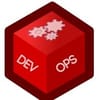To help DevopsCube readers, we have interviewed Pradeep Pandey, a certified Kubernetes administrator and developer for tips & tricks to ace the Kubernetes certification exam.
Kubernetes Certification Exam Overview
Before getting into the certification tips, let's have a look at the exam overview.
- Exam Type: Hands-on Lab, no theoretical questions.
- Duration: 3 hrs
- Total Questions: 24
- Can appear for the exam from anywhere using the browser terminal.
- Can have two browser tabs open during the exam. One exam terminal and another official Kubernetes documentation.
Note: You can checkout our complete CKA exam guide.
What skillsets you had when you started preparing for the certification?
I was primarily working on Linux, Cloud, Automation, Jenkins, Networking, Security & Kubernetes.
How long did it take for you to prepare for CKA certification?
I worked on Kubernetes for more than 2 years before appearing for the certification exam mostly on the cluster administration, cluster components troubleshooting, cluster networking, and application deployments using Kubernetes objects.
Even though, I had the previous experience I had to fully dedicate 1 week to for preparing the certification exam. As there are many Kubernetes components and concepts that I was not using in my day-to-day work. One such thing would be the cluster setup as it is a one-time task.
Note: You could save up to $187 using Kubernetes certification coupons
What are the key areas one should focus on?
Linux
- Linux knowledge - Regex, filtering, searching, editing using sed (replacing texts, etc)
- Should be good at any one of the Linux command line editors. (vi/vim, nano) editor. Editor shortcuts knowledge is must-have if you want to save time in the examination.
- Understanding of Systemd service file configurations
Certificates
- Understanding on CA, root CA (certificate chain)
- Generation of client and server certificate (OpenSSL).
- Should have an understanding of all the information required for the certificates. For example, Kubernetes cluster etcd SSL configuration
Kubernetes
- Kubectl: You should be comfortable using all kubectl commands as it will be used to create, edit and manage all Kubernetes resources.
- Custer Administration
- Cluster Networking
- Kubernetes Functionalities: Very good understanding of kubernetes YAML specification of all Kubernetes objects. Very good understanding of deploying all the Kubernetes objects using YAML (pods, deployment, service, etc)
What are the best resources for CKA preparation?
I used the official kubernetes documentation as it covers all the Kubernetes concepts with examples. I have the following suggestions if you are a beginner to Kubernetes.
Note: If you are preparing for Certified Kubernetes Security Specialist, refer to the CKS exam study guide
What is your advise for Kubernetes beginners?
If you are an absolute beginner, the following resources will help you get started.
- katacoda
- Start with kubeadm for learning kubernetes setup
- kubernetes official documentation
Practice very well with hands-on labs before you appear for the exam.


